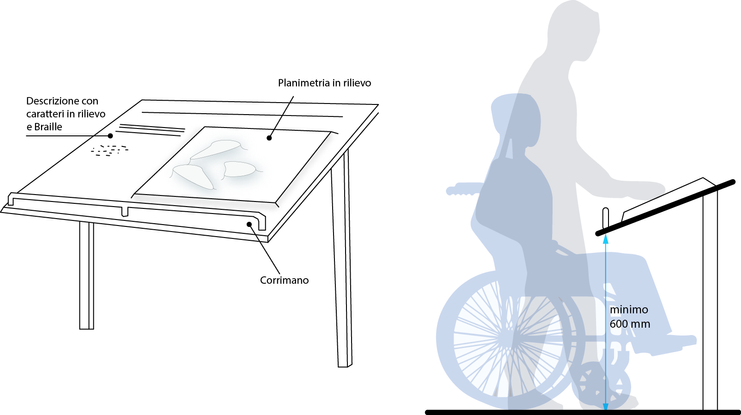Urban Innovation Project (PIU)
Design guidelines for accessibility - Municipality of Cecina
General Info
PIU - Design guidelines for accessibility, urban ergonomics and wayfinding of the the school village
Typology
Contract for research contribution between:
Municipality of Cecina and the Department of Architecture DIDA of the University of Florence following the call POR FESR 2014-2020 Urban Axis 6 - Urban Innovation Projects – PIU “AllenaMente…una città per tutti”- Action Line 9.6.6 sub action a.1 of the Urban 6 Axis Operation “Functional recovery of the Multi-purpose Social Center and public spaces of the“ Scholastic Village ”complex.
Period
2015-2017
Coordination
Prof. Francesca Tosi (Scientific Responsible)
Prof. Alessandra Rinaldi (Scientific Coordinator Phase 2-3-5)
Dott.ssa Alessia Brischetto (Scientific Coordinator Phase 2-4-6)
Department of Architecture DIDA of the University of Florence.
Partnership
Municipality of Cecina
EPUS
PROJECT DESCRIPTION
General Objective
The study starts from the assumption that disability today is understood as a condition of health in an unfavourable environment. It acts as a guide for the Municipality of Cecina, aimed at guiding the design and construction of a welcoming and accessible urban environment.
The guidelines, on the basis of a review of the literature and of the sector legislation, the aspects considered strategic to pursue design choices with a high inclusive value. The study reports in particular the parameters of acceptability regarding the accessibility and use of urban space (Urban Ergonomics), the removal of physical and perceptive barriers, urban furnishings for all and wayfinding.
The general objectives of the LED study was to provide the Municipal Administration with the following:
-
Design guidelines needed to promote mobility and use of space;
-
Design guidelines needed to break down perceptive barriers;
-
Information regarding accessibility and usability for pedestrian, cycle and country paths;
-
Functional indications for the choice of street furniture complying with the requirements of accessibility and security;
-
Design guidelines on the wayfinding for all.
Operating phases of the project
Phase 1 - Elaboration of Guidelines for accessibility for all, urban Ergonomics, the way finding for all, for the citadel of sport (reference: DR n. 3197 of 10.07.2015, Annex A, Line of action 9.6. 6 a.1 - Social functions).
Phase 2 - Development of Guidelines for accessibility to sports functions for the elderly, disabled and children and the creation of life paths for users from 6 to 99 years (reference: DR No. 3197 of 10.07.2015, Annex A, Line of action 9.6.6 a.2 - Sports functions).
Phase 3 - Scientific collaboration for the development of spaces to be built within the library, dedicated to inclusion and social exchange services based on the concept of Gyms as "Wellness Provider" (reference: DR n. 3197 of 10.07.2015, Annex A, Action Line 9.6.6 a.3 - Culture and entertainment).
Phase 4 - Development of Guidelines and collaboration aimed at carrying out interventions for soft urban mobility, such as bike sharing, bike paths and parking spaces for private bicycles (reference: DR No. 3197 of 10.07.2015, Annex A, Line of action 4.6.1 urban mobility).
Phase 5 - Collaboration and technical assistance for the realization of an information system based on the use of intelligent urban lampposts, or equipped with detection sensors, concerning the creation of information points to support disability and discomfort, to support the sports and personal well-being activities, support for safety and emergency calls, public hearing (reference: DR No. 3197 of 10.07.2015, Annex A, Action Line 4.1.3 - intelligent public lighting)
Phase 6 Guidelines "GAMES for EVERYONE".
Theme developed in addition to the convention at the request of the Municipality.
The contribution of the Ergonomics & Design Laboratory (LED)
The Laboratory of Ergonomics & Design (LED), of the University of Florence, provided the project with all the knowledge, scientific advice and technical support needed for a project that puts Man and the Environment at the center of the project and which takes into account the needs and expectations of contemporary users, deriving from the emergence of new lifestyles and behavior and the lengthening of the life expectancy of citizens belonging to our society.












